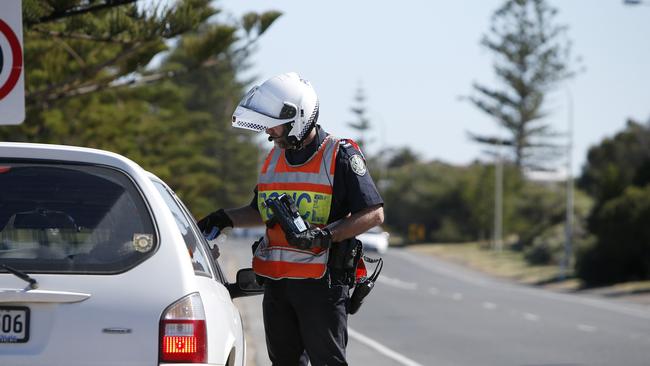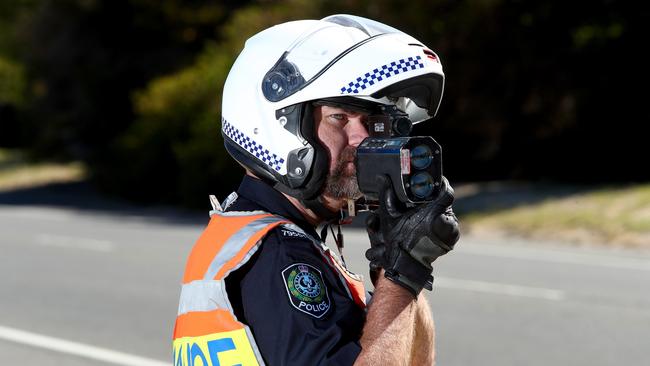Afterpay could be used to pay fines in SA under overhaul as dodgy speed camera pictures soar
Police are considering using payment plan providers such as Afterpay for speeding, firearms and cannabis fines. But will the move help or hinder the public?

Police & Courts
Don't miss out on the headlines from Police & Courts. Followed categories will be added to My News.
- Get the most from your Advertiser subscription
- More than 850 drivers busted speeding in four days in SA
MOTORISTS with overdue fines could be given the choice to use payment plans such as Afterpay as part of a major overhaul of the state’s “ageing” and “difficult” expiation notice system.
South Australia’s peak welfare body fears the move could entrap vulnerable people into difficult credit arrangements.
However, analysis of current payment plans shows the idea might give the state’s motorists a cheaper option to deal with an estimated $330m in outstanding fines.
SA Police, armed with a $7.7m budget, is on the hunt for an organisation to replace its expiation notice system.
Tender documents describe the current system as “end-of-life, operating at limited capacity with ageing technology that is becoming increasingly difficult to support”.
The system deals with traffic, cannabis, firearms, public transport and licensing offences.
Police Minister Vincent Tarzia said the new system would bring the state into the 21st century and deliver a more efficient process.
Mr Tarzia said a number of new payment options, including PayPal, BPay and Afterpay, were under consideration.
“The appropriate due diligence will be carried out before a final decision is made,” he said.

SACOSS acting chief executive Catherine Earl said the additional providers could increase convenience.
“But at the same time it may also add fees and charges or entrap vulnerable people into difficult credit arrangements,” Dr Earl said.
However, Dr Earl pointed out the government already increased fines by $197 if they were not paid after 30 days.
“So in that sense, even the worst credit regime may still be better than late payments.”
Purchases made using Afterpay must be paid in instalments every two weeks.
Fees apply for missed payments. Last year, Afterpay introduced caps on late fees, which means customers do not pay more than $68 in late fees per order.
But it was unclear how the system would work with a government agency.
Consumer advocate group Choice last week reported Afterpay charged retailers a 30c fixed transaction fee plus a commission between 3 and 7 per cent on each sale – considerably higher than what retailers are charged by banks to process other payment types.
SA Police was tight-lipped about the possible use of Afterpay when contacted by The Advertiser.
It also had very little to say about a huge jump in the number of fixed and mobile camera photographs that were rejected due to poor quality.
New figures show there were a record 98,088 rejected photos last financial year, up from 61,584 the year before.
During the 2015-16 financial year there were 46,192 rejected photos.
An SA Police spokesman said both mobile and fixed safety cameras were tested as per Australian Standards – prior to each deployment for mobile and every 28 days for fixed.
“The instruments are further calibrated every 12 months,” he said.
Meanwhile, more than 850 drivers were issued speeding fines in just four days last week.
